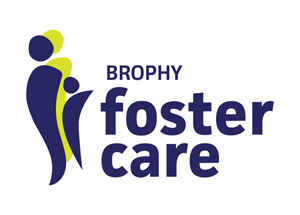
Steps to becoming a foster carer

How we support you

During Accreditation
- Step-by-step guidance
- 100% confidentiality
- Prompt follow up
- Training and mentoring

Accredited Foster Carers
- 24/7 access to assitance
- Renumeration
- Ongoing training and development
- Be informed and included
Frequently Asked Questions
Can I choose short or long term placements?
There are four different types of care:
- Respite care – one or two weekends per month and usually planned either to support existing foster care placements or famiilies in the community.
- Emergency care – from one night up to one month and usually can occur on weekends.
- Short-term care – from one month up to one year.
- Long term care – from one year plus.
Carers can choose type of care and the age of children and young people that suits them and thier family.
What are the 'must have' for accreditation?
The mandatory requirements are:
- be over 21 years of age
- have a satisfactory Police and Working with Childrens Check
- have space in your home for another child
- complete the mandatory training
- complete a health check
- satisfactory referee check
What is the renumeration available?
Foster careres are provided with a fortnightly reimbursement to cover their out of pocket expenses when caring for a child. These rates differ depending on the childs needs. For more information on rates please visit the Department of Health and Human Services website: https://services.dhhs.vic.gov.au/foster-care
Why are children in foster care?
Children and young people requiring foster care can be of any age (up to 18 years), and can come from various cultural, religious, and socio-economic backgrounds.
Children and young people are placed in foster care for a range of reasons, and foster care can occur as a result of a court order, or through a voluntary arrangement between the child or young person’s parent and a service provider. It could be overnight, for a month or longer – it all depends on the needs of the child.
What am I responsible for as a foster carer?
As a foster carer, your responsibilities are to:
- put the best interests of the child or young person first[1]
- provide a safe and nurturing home
- respect and proactively maintain a child or young person’s connections to family, community and culture, according to their case plan
- support the permanency objective for the child or young person
- provide culturally appropriate care to children and young people who are Aboriginal or from culturally diverse backgrounds
- encourage the child or young person’s learning and educational achievement
- support the child or young person’s wishes and views and advocate for their healthy development
- maintain open communication with other care team members to keep them informed
- uphold the child or young person’s, and their family’s, right to privacy
- fulfil your role within the care team and understand the role of other care team members
- actively seek opportunities to develop your skills and knowledge to care for the child or young person
- actively participate in developing the Care and Placement Plan, and other Looking After Children tools.
[1] The Children, Youth Families Act states that the best interest of a child or young person must always be paramount when making a decision, or taking action. When determining whether a decision or action is in the child’s best interests, there are a number of needs that must always be considered:
- the need to protect the child from harm
- the need to protect the child’s rights
- the need to promote the child’s development (taking into account his or her age, stage of development, culture and gender).
What is Brophy responsible for?
As a foster carer, you can expect us to:
- action your needs as soon as possible, to assist you in caring for the child or young person
- include you in planning and seek your views in care team meetings
- consider and respect the health and wellbeing, culture and religion of you and your family
- consider your safety when planning about the disclosure of your address to parents of the child or young person
- provide timely information to you about court decisions and other issues that affect you and the child or young person in your care
- establish regular channels of communication with you and provide you with important documentation, such as the instrument of authorisation and cultural plans
- give prompt advice to you about changes to contact arrangements
- provide all relevant available information to enable you to make an informed choice about caring for a child or young person
- respond to issues and complaints in a timely manner, and treat you fairly
- manage quality of care matters with sensitivity and understanding of the emotional impact on you and your family
Connect with other foster carers
Carer Kafe
Subscribe to our newsletter
Social Media Social Group
Put You & Your Family in Good Hands
Get In Touch
Please send us a message and we will get back to you. Thank you for reaching out.



